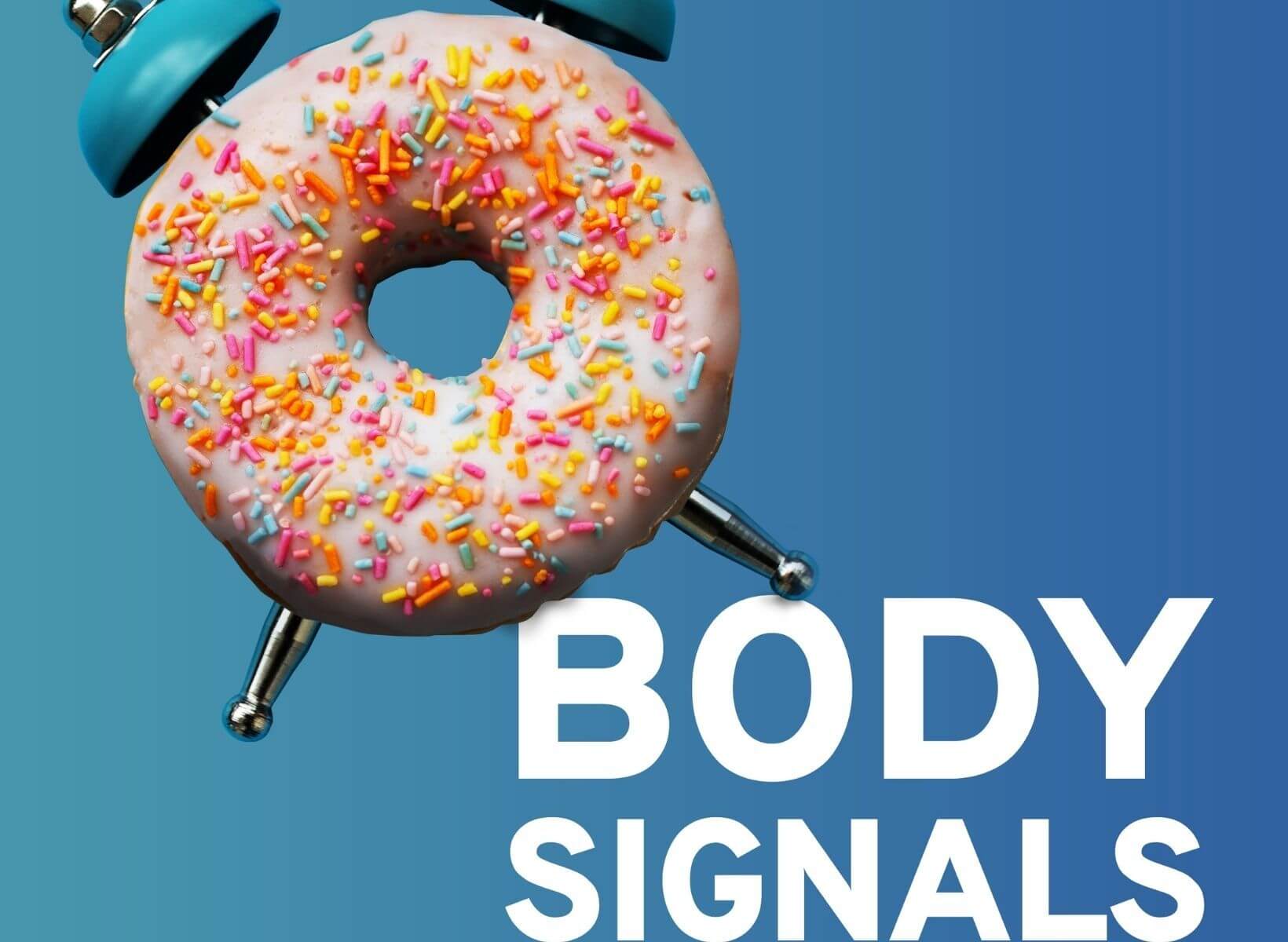The mind and body are more interconnected than we may realize. While we often think of physical health and mental health as separate entities, they are deeply intertwined. This connection becomes particularly apparent when we experience anxiety, which can directly impact how our body reacts. One common symptom of anxiety that many people experience is nausea. You're not alone if you've ever felt queasy or nauseous during a particularly stressful situation. In this article, we'll explore why anxiety can cause nausea and, more importantly, what you can do to alleviate this uncomfortable symptom.
<p class="pro-tip"><strong>Learn more: </strong> <a href="/blog/foods-for-mental-health">Foods Good for Mental Health and Blood Sugar</a>.</p>
What is Anxiety Nausea?
Anxiety nausea is a feeling of queasiness or sickness in the stomach that is often accompanied by a loss of appetite or an inability to eat. This type of nausea can occur in situations where a person is experiencing heightened levels of anxiety or stress, such as during a panic attack or in a high-pressure social situation. The physical side effects of anxiety nausea include dizziness, sweating, and increased heart rate. While these symptoms can be uncomfortable and distressing, it's important to remember that they are a normal part of the body's response to stress and anxiety. Understanding how anxiety-related nausea works can help you better manage these symptoms and feel more in control during moments of high stress.
Why Does Anxiety Cause Nausea?
The body's natural flight, fight, or freeze response mechanism explains the connection between nausea and anxiety. When the body perceives a threat, whether real or imagined, it releases stress hormones such as cortisol and adrenaline. These hormones trigger a cascade of physiological responses that prepare the body to respond to the threat, usually choosing between fight or flight.
One of these bodily responses is redirecting blood flow away from the digestive system and toward the muscles and other organs needed for survival. This redirection of blood flow can cause the digestive system to slow down or even temporarily shut down, leading to symptoms such as nausea, vomiting, heartburn, acid reflux, stomachaches, bloating, diarrhea, and constipation. These symptoms result from a disruption in the gut-brain connection, which is the network of nerves and chemicals that allows the brain and digestive system to communicate with each other.
In addition to these digestive symptoms, anxiety can produce a range of other symptoms that affect the body and mind. These can include increased heart rate and blood pressure, sweating, trembling or shaking, feelings of restlessness or agitation, difficulty sleeping, and a sense of impending danger or doom.
The connection between anxiety and the digestive system is particularly strong. The gut is often referred to as the "second brain" due to its significant role in regulating mood and emotion. The gut contains millions of nerve cells that produce neurotransmitters, such as serotonin, often called the "happy hormone." When the gut-brain connection is disrupted, it can lead to a range of physical and emotional symptoms.
To manage symptoms of anxiety-induced nausea, other digestive symptoms, and even health conditions, it's important to focus on reducing overall stress levels and supporting a healthy gut-brain connection. This can be achieved through practices such as regular exercise, mindfulness meditation, and a balanced diet that includes plenty of fiber-rich foods and probiotics.
It may also be helpful to work with a mental health professional to develop strategies for managing anxiety and other symptoms of stress. With the right support and tools, it is possible to reduce the impact of anxiety on the body and mind and regain a sense of calm and well-being.

What Anxiety Disorders Can Cause Nausea?
Anxiety can be a real pain in the gut, causing nausea and a range of other unpleasant gastrointestinal symptoms that can make you feel miserable. But did you know that several anxiety disorders can cause this gut-wrenching feeling? Let's take a closer look at a few of them.
Generalized Anxiety Disorder
First up, we have Generalized Anxiety Disorder (GAD). This is characterized by excessive worry and anxiety about just about anything and everything. From work and relationships to health and finances, GAD can make you feel like the weight of the world is on your shoulders. And as if that weren't bad enough, nausea and other physical symptoms, like muscle tension and irritability, are common with GAD.
OCD
Next on our list is Obsessive-Compulsive Disorder (OCD). With OCD, you might be plagued by intrusive thoughts or obsessions that cause anxiety, along with compulsive behaviors or rituals that you feel you must perform to make the anxiety disappear. And yep, you guessed it - nausea can be a common physical symptom associated with OCD.
Social Anxiety Disorder
Social Anxiety Disorder (SAD) is another anxiety disorder that can cause nausea and a range of other physical symptoms, such as sweating, trembling, and blushing. With SAD, you might feel like you're constantly on high alert, afraid of being judged or evaluated by others in social or performance situations.
Panic Disorder
Panic Disorder is an anxiety disorder that can cause serious gut reactions. With panic disorder, you might experience sudden and unexpected panic attacks, which can feel like you're having a heart attack or even dying. Along with nausea, other physical symptoms like chest pain, shortness of breath, and sweating are common during panic attacks.
Other anxiety disorders that can cause nausea include Post-Traumatic Stress Disorder (PTSD) and specific phobias. With PTSD, you might experience intense anxiety, flashbacks, and nightmares related to a traumatic event, while specific phobias can cause intense fear and anxiety related to specific objects or situations.
Treatments for Anxiety
If you're struggling with anxiety-induced nausea or other anxiety symptoms, knowing you're not alone is important. There are many different types of anxiety disorders, and each can be treated with the right tools and support. Luckily, several effective treatments can help alleviate symptoms and improve overall quality of life. Let's take a closer look at a few of them:
1. Cognitive Behavioral Therapy (CBT):
This type of therapy is one of the most commonly used treatments for anxiety and for good reason. CBT is a form of talk therapy that focuses on identifying and changing negative thought patterns and behaviors that contribute to anxiety. By learning new coping skills and techniques, you can start to feel more in control of your anxiety and reduce physical symptoms like nausea.
2. Medication:
While therapy can be incredibly effective for treating anxiety, medication is sometimes necessary to control symptoms. Several types of medications can be used to treat anxiety, including anti-anxiety drugs, antidepressants, and beta-blockers. These medications work in different ways to reduce anxiety and alleviate physical symptoms like nausea.
3. Psychodynamic Therapy:
This therapy explores the underlying causes of anxiety and how past experiences and relationships may contribute to current symptoms. By gaining insight into the root causes of your anxiety, you can start to make positive changes in your life and reduce physical symptoms like nausea.
4. Lifestyle Changes:
While therapy and medication can be incredibly effective for treating anxiety, you can also make several lifestyle changes to help manage symptoms. This might include regular exercise, relaxation techniques like meditation or deep breathing, and avoiding caffeine and alcohol, which can worsen anxiety symptoms.
{{mid-cta}}
How to Stop Feeling Sick from Anxiety
Ultimately, the most effective treatment for anxiety depends on your needs and preferences. Some people may find that combining therapy and medication works best, while others may prefer to focus on lifestyle changes and alternative treatments. While therapy and medication can be super helpful in treating anxiety, sometimes the best medicine is a little self-care.
6 Tips to Improve Anxiety
So, let's dive into some tips to improve your anxiety and kick that nausea to the curb:
Get movin'
Exercise is a great way to release those endorphins and reduce stress. You don't have to go all out; aim for at least 30 minutes of movement a day, whether it's a walk, jog, or a quick dance party in your living room.
Eat up
What we put into our bodies can greatly impact how we feel. Make sure to eat a balanced diet of whole foods, fruits and veggies, and lean proteins.
Catch those z's
We all know how important sleep is, but getting those recommended 7-8 hours a night can be tough. Try sticking to a routine to help regulate your sleep schedule and ensure you get the rest you need.
Hang with your friends
Humans are social creatures; sometimes, we need a little company to help us feel better. Make time for your friends and family, or join a new group or club to meet new folks.
Limit the alcohol and caffeine
As tempting as it can be to reach for that second cup of coffee or another drink, both caffeine and alcohol can make anxiety symptoms worse. Limit yourself to one or two cups of coffee a day, and maybe skip that happy hour for some self-care instead.
Relax and unwind
Sometimes, we need to take a deep breath and relax. Try meditation, aromatherapy, or deep breathing exercises to help calm your mind and body. Remember to treat yourself to a little pampering, whether it's a bubble bath or a massage.

When You Should See a Doctor
Managing anxiety can take time and effort, but feeling your best is worth it. Everyone's body is different, so some of these tips may work better for you than others.
If your symptoms persist or worsen, don't hesitate to seek medical attention. Anxiety-induced nausea, while not usually a serious medical condition, may require the intervention of a qualified healthcare professional in certain situations.
Here are some scenarios where it may be necessary to book an appointment with your doctor:
When feelings of nausea are persistent
If nausea persists for an extended period or is severe, it's time to talk to your doctor. In some cases, nausea can be a symptom of an underlying medical condition, and your doctor can help you diagnose and treat the problem.
When other symptoms occur
If nausea is accompanied by other symptoms, such as fever, abdominal pain, or changes in bowel movements, it's time to schedule an appointment. These symptoms could indicate a more serious condition that requires medical attention.
When medication isn't working
If you've tried over-the-counter remedies and home treatments and still can't get relief from nausea, it's time to see a doctor. They can prescribe medication that is more effective in managing your symptoms.
When anxiety is interfering with daily life
If anxiety is interfering with your ability to function in your day-to-day life, it's time to seek the help of a mental health professional. A therapist or psychiatrist can help you manage anxiety symptoms and develop coping strategies that work for you.
Remember, seeking medical attention isn't a sign of weakness. In fact, it's a courageous step towards improving your well-being. Your health is important, and there's no shame in asking for help when you need it.
Learn More About Health and Improve Your Lifestyle with Signos
Maintaining a healthy lifestyle is important, and staying on top of your health is crucial to achieving this goal. This includes being mindful of what you eat, monitoring your glucose levels, and being mindful of any potential health issues.
While there are many ways to achieve this, Signos offers a unique solution with its Continuous Glucose Monitoring (CGM) service. By providing real-time data on your glucose levels and the power of AI, Signos can help you make informed decisions about your diet and lifestyle choices, leading to improved health outcomes. Signos' CGM system has been scientifically proven to improve health outcomes, including weight loss and better blood glucose control.
To learn more about the science behind Signos' CGM system, visit their science page. To understand how their system works and how it can benefit you, check out their how it works page. And if you're curious if Signos is right for you, take their quick quiz to find out.
Signos Health's CGM system is an innovative and effective tool for improving health outcomes and promoting healthy eating habits. So, if you want to improve your overall health and well-being, consider trying Signos.
<p class="pro-tip"><strong>Keep reading: </strong> <a href="/blog/what-is-a-continuous-glucose-monitor">How Does a Continuous Glucose Monitor (CGM) Work?</a>.</p>
People Also Ask:
Q: What does anxiety nausea feel like?
A: Anxiety nausea can feel like a queasy or unsettled feeling in the stomach, sometimes accompanied by a loss of appetite or a sense of wanting to vomit.
Q: How do I stop nausea from anxiety?
A: Some strategies that may help alleviate nausea from anxiety include deep breathing exercises, progressive muscle relaxation, mindfulness meditation, and engaging in physical activity. It's also important to manage your anxiety with therapy, medication, or other coping techniques.
Q: Does anxiety nausea go away?
A: Yes, anxiety nausea can go away. With proper treatment and management of anxiety, the physical symptoms of anxiety, including nausea, can often be reduced or eliminated.
Q: Is anxiety nausea a mental illness?
A: Anxiety nausea is not a mental illness in and of itself, but it can be a symptom of an anxiety disorder or other mental health condition. It's important to seek a professional evaluation if you are experiencing persistent nausea or other anxiety-related physical symptoms.
- Item 1
- Item 2
- item 3































